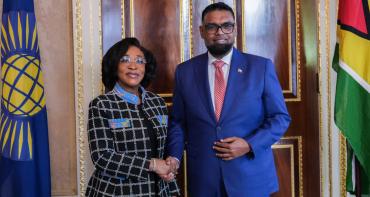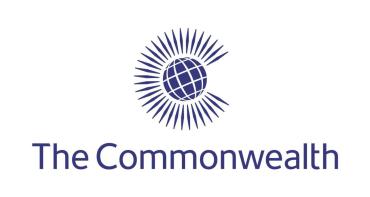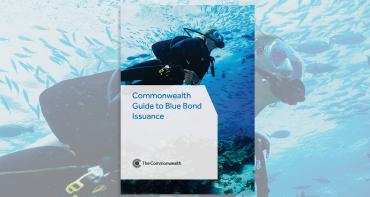Recently, advisers from the Commonwealth Climate Finance Access Hub (CCFAH) completed a Climate Finance Writeshop in the Solomon Islands to strengthen the skills of climate stakeholders in producing effective concept notes by incorporating earth observation data.
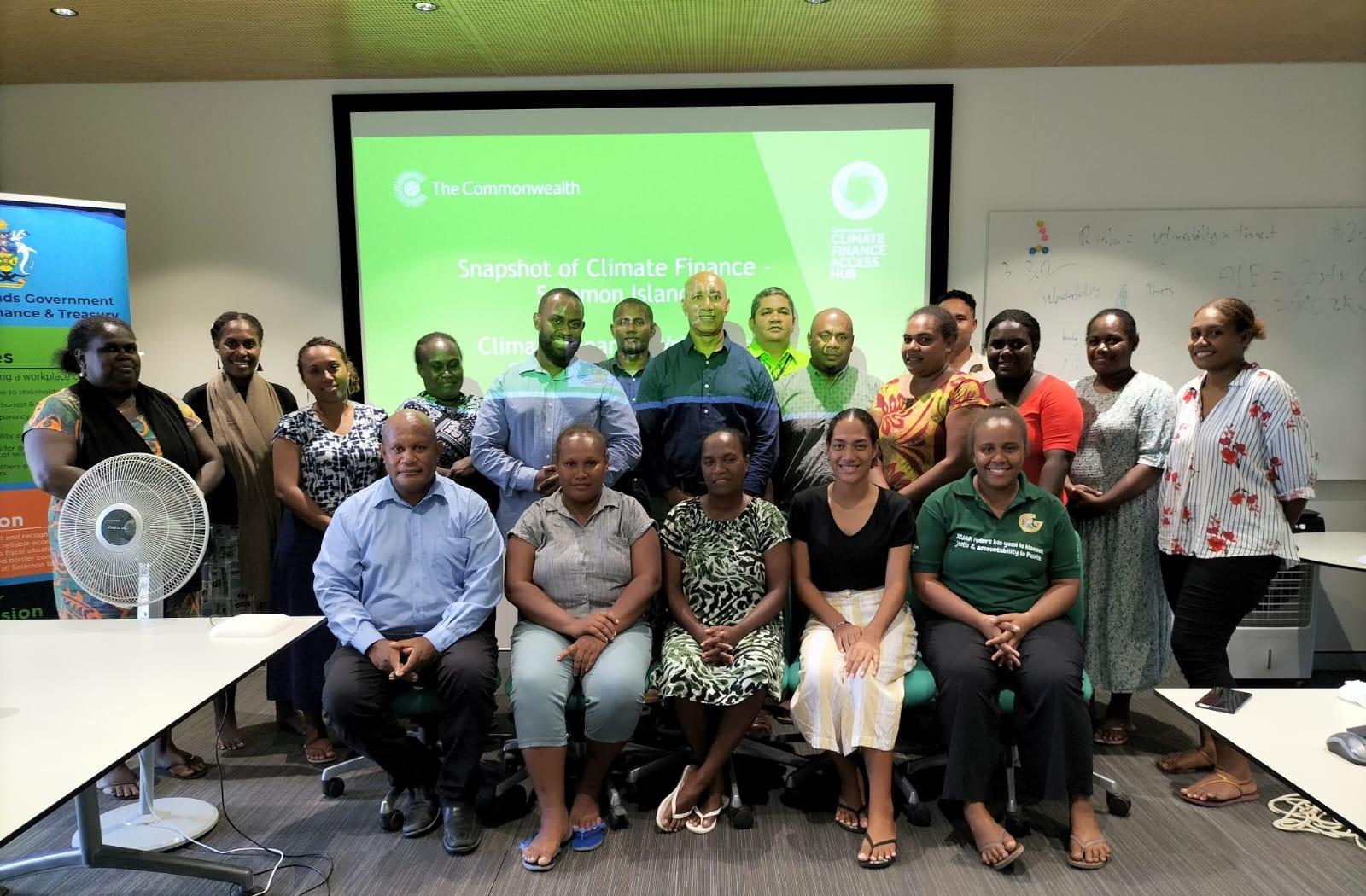
Twenty public officials from various government departments, state-owned enterprises and non-government organisations received valuable skills and practical training, which they can continue to use to access funds to benefit their country.
A Climate Finance Writeshop is an intensive, participatory workshop that aims to bring together diverse participants to produce a written output. Over two days, they worked collaboratively to create a concept note for upscaling the Honiara intra-city e-bus project, which will build on a USD$2M project already secured through the GEF.
Both government and non-governmental officials expressed the importance of Climate Finance Writeshops in building their capacity. One attendee, Mr Channel Iroi, Deputy Secretary-Technical in the Ministry of Environment, Climate Change, Disaster Management, and Meteorology noted:
“The Climate Finance Writeshop training should be incorporated as part of the public service capacity building training and delivered to relevant government personnel and officials across the country. The skills acquired will be used as tools to develop and enhance further concept note and proposals by government and the private sector.”
Why the focus on using earth observation data?
Since 2020, the Commonwealth Secretariat has been working with partners to roll out Climate Finance Writeshops, with a focus on incorporating earth observation data, within the Pacific region (i.e., Fiji, Solomon Islands, and Vanuatu).
Using earth observation data is critical for building robust and evidence-based concept notes and developing an effective proposal, prior to submission to international climate funds such as the Green Climate Fund.
For example, earth observation can provide accurate, real-time data on land cover, topology, groundwater and soil moisture, atmospheric changes. It can also provide evident of the rate of change for projects relating to sea-level rise, flooding, land degradation, fisheries, coastal protection and food security.
This initiative was funded by Norwegian Agency for Development Cooperation (NORAD) and implemented by the Commonwealth Climate Finance Access Hub (CCFAH), in collaboration with the UNITAR/UNOSAT and the Ministry of Environment, Climate Change, Disaster Management & Meteorology (MECDM).
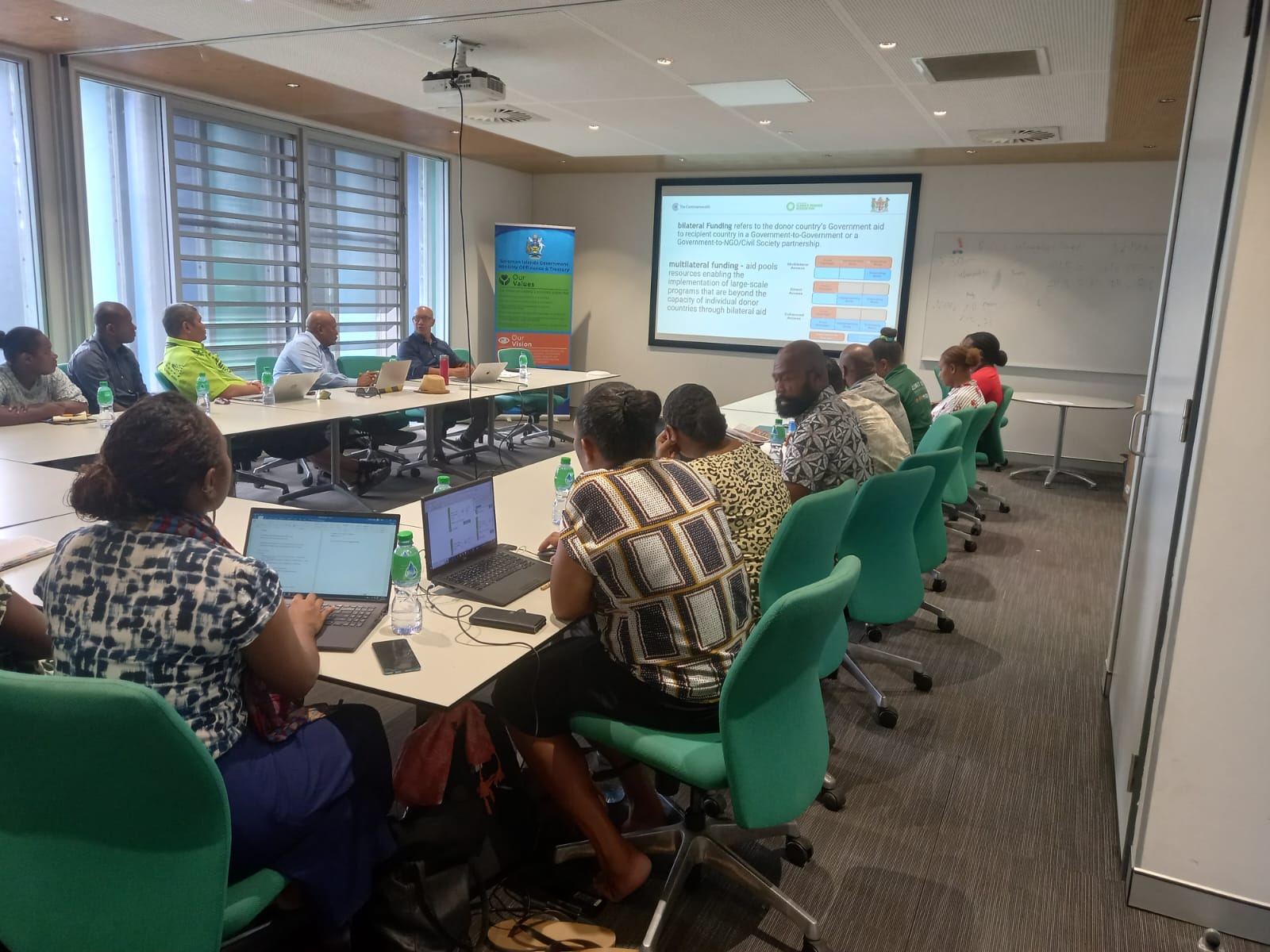
Developing a climate finance concept note
During the working group sessions led by Dr Michael Ha’apio, Commonwealth National Climate Finance Advisor for the Solomon Islands, in collaboration with Martin Barriteau, Commonwealth National Climate Finance Advisor for Tonga, participants discussed the theory of change.
They also reviewed problem analysis, type of data requirements, how the project is aligned to the GCF Investment Criteria – for example, its potential for sustainable development, and justification for the sustainability of the project.
Dr Ha’apio shared with the participants the need to construct a clear narrative and a strong business case. He said:
“Gone are those days where donor partners would basically fund almost every sad story, wrapped-up in proposals, from vulnerable communities seeking finances. Nowadays, proposals submitted must demonstrate strong climate change rationales and must be in line with the investment criteria of the funding agencies to stand any chance for approval.”
The training of these senior public officials and NGO representatives is critical for building long-term access to climate finance adaptation and mitigation at the national level.
Other participants also found the training useful, Ms Tanya Afu, from the Solomon Islands Climate Action Network, stated:
" As someone who is working with community-based organisations and youths, the skills gained through this kind of training are very beneficial as they can also be used to apply for other funding. Learning about the CommonSensing (NORAD GIS) is also one of the interesting things I have learnt, and I believe that for Solomon Islands Climate Action Network, this could be a great tool that our members can access to assist them in their conservation work ".
Another participant, Mr Chris Wagatora, Team Leader of the Climate Finance and Resilience Unit in the Ministry of Finance and Treasury, said:
“Accessing climate finance is no longer an option, it is critical for our survival as Pacific Small Island Development State. This training is vital for us in understanding the climate finance landscape, and how to develop concept notes. The use of geospatial technology with open data source, adds value to our climate rational or justification.”
The Climate Finance Writeshop in the Solomon Islands is an activity under the “Strengthening Capacities in the use of geospatial information for improved resilience in Asia-Pacific and Africa – 2022-2024” project, which targets three of CCFAH’s beneficiary countries, Fiji, the Solomon Islands and Vanuatu. The next Climate Finance Writeshop is scheduled for July in Vanuatu.
About the Commonwealth Climate Finance Access Hub
Media contact
- Josephine Latu-Sanft Senior Communications Officer, Communications Division, Commonwealth Secretariat
- +44 20 7747 6476 | E-mail

